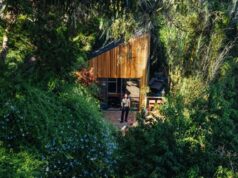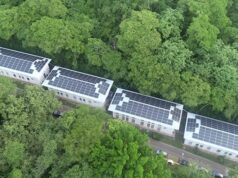Every year seems to be another year of broken weather records and freak natural disasters. These events cause major and minor problems for individuals and businesses the world over.
While nations are discussing what to do in global climate conferences, many of us in the lodging industry are turning our attention to strategies like climate-proofing. Climate-proofing is one way to both mitigate the environmental impact of the hotel and lodging industry, while adapting to the changes that are already underway. Here are four areas of consideration for doing just that.
Research
Like any decision-making process, climate-proofing always begins from a place of knowledge. For mitigation, figure out where your biggest sources of emissions are. For adaptation, chances are you’ll already know something about the kind of weather events and other climatological factors in your area, but secondary consequences should be thought about too. For example, extreme weather adds energy strain, such as when extreme cold led to huge state-wide blackouts in 2021.
In the United States, the National Climate Assessment is a phenomenal source of sectoral and regional information, while the National Weather Service keeps records on all the major weather events and has plenty of detailed data to dig into generally. Keeping an eye on these resources will help you plan your next steps for both the short and the long term.
Optimize for Energy Efficiency
Energy efficiency isn’t just about mitigation and saving long term on bills. In an extreme situation where less energy is available, increased efficiency could make a huge difference.
How does this apply to lodging specifically? The Viana Hotel & Spa is an example of how optimizing your lodging business for energy efficiency and sustainability can help you weather climate-related disasters. Increased efficiency was spurred on in this case by the secondary effects of Hurricane Katrina on energy prices.
Planning for efficiency can include thinking about things like insulating factors or even overhauling an entire energy system to renewables. Whether you go big or small, energy efficiency is necessary for the long-term profitability of your business.
Prepare for the Worst
Even the best preparation is sometimes no match against natural disasters, so hotel owners need to know what financial resources to tap into during or after a crisis, especially if insurance won’t cover certain kinds of events.
Take stock of available funding in your area, and note in particular whether they have funding available for natural disasters or climate change-related events. An AskMoney guide to disaster assistance explains how the FEMA grant, for example, can help homeowners and small business owners get back on their feet during a disaster. Understanding exactly what the agency is, who the assistance is for, and how to apply could become vital information during unavoidable natural disasters.
Prioritize Critical Features of the Business
There’s only so much you can do to protect a lodging business in a category 5 hurricane, but for less extreme situations it’s worth thinking about what your most critical assets and risks are. If you’re in an area affected by wildfires, fireproof the most important and vulnerable walls first. If your state has a high likelihood of floods, it’s best to keep offices and backup power elevated where possible.
It’s all well and good to switch to more energy efficient light bulbs in the foyer, but how old is the boiler? We’ve already mentioned the importance of energy efficiency and alternative energy sources—once you have these covered, important equipment should obviously be the primary target of the changes you make.
There are several avenues for upgrading the safety and longevity of your business equipment and features. The Small Business Association has a list of state and local energy efficiency programs, for one, and the Environmental Protection Agency discusses other options.
Start investing in better climate-proofing now, so that you have less to worry about in the future.







